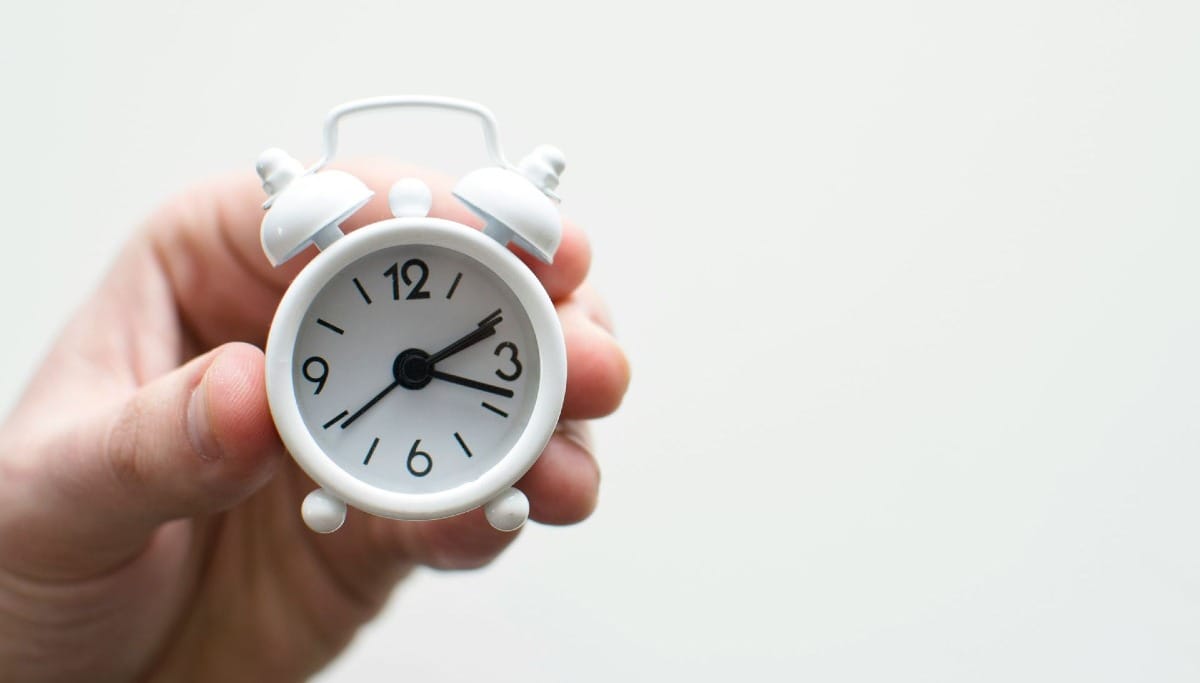Chronobiology, the study of biological rhythms and their synchronization with environmental cycles, has emerged as a crucial field for understanding how our bodies function on a daily basis. At the heart of this science lies the circadian rhythm, our internal 24-hour clock that regulates various physiological processes. By aligning our daily routines with our natural circadian rhythms, we can optimize our health, productivity, and overall well-being. This article explores the intricacies of chronobiology and provides practical strategies to harmonize your lifestyle with your body's natural cycles, empowering you to unlock the power of your internal clock for a more balanced and energized life.
Understanding Circadian Rhythms
Circadian rhythms are the internal biological processes that regulate our daily cycles of sleep, wakefulness, hormone production, and other physiological functions over a roughly 24-hour period. These rhythms are primarily controlled by the suprachiasmatic nucleus (SCN), a group of neurons in the hypothalamus that acts as the body's master circadian clock 1. The SCN receives light signals from the eyes and uses this information to synchronize the body's internal clock with the external environment.
At a cellular level, circadian rhythms are driven by a complex interplay of genes and proteins that form a self-regulating feedback loop. Key genes involved in this process include CLOCK, BMAL1, PER, and CRY 1. These genes produce proteins that accumulate and degrade in a cyclical manner, influencing various cellular functions throughout the day.
Circadian rhythms affect numerous aspects of human physiology, including:
- Sleep-wake cycle: The most obvious manifestation of circadian rhythms is our natural tendency to feel sleepy at night and alert during the day 2.
- Hormone production: Many hormones, including melatonin (the "sleep hormone") and cortisol (the "stress hormone"), are produced in a circadian pattern 2.
- Body temperature: Core body temperature fluctuates throughout the day, typically reaching its lowest point in the early morning hours 1.
- Metabolism: Circadian rhythms influence metabolic processes, including glucose metabolism and lipid synthesis 3.
- Cognitive function: Alertness, reaction time, and cognitive performance vary throughout the day in accordance with circadian rhythms 2.
Environmental cues, known as zeitgebers, help synchronize our internal clocks with the external world. The most powerful zeitgeber is light, but other factors such as meal timing, physical activity, and social interactions also play a role 4.
Disruptions to circadian rhythms can occur due to various factors, including:
- Shift work or irregular sleep schedules
- Jet lag from traveling across time zones
- Exposure to artificial light at night
- Inconsistent meal times
- Certain medications or medical conditions
These disruptions can lead to a state of circadian misalignment, where the body's internal rhythms are out of sync with the external environment. Chronic circadian misalignment has been associated with numerous health issues, including sleep disorders, metabolic dysfunction, cardiovascular problems, and mood disorders 5.
Understanding the importance of circadian rhythms can help individuals make informed decisions about their daily routines and lifestyle choices. By aligning our behaviors with our natural biological rhythms, we can optimize our health, productivity, and overall well-being 6. This may involve maintaining consistent sleep and meal schedules, managing light exposure, and timing activities to coincide with our body's natural peaks in energy and alertness.
As research in chronobiology continues to advance, it is becoming increasingly clear that respecting and working with our circadian rhythms is crucial for maintaining optimal health in our modern, 24/7 society.
Sources:
- (1) Introduction to Chronobiology - PMC - NCBI
- (2) Circadian Rhythms - National Institute of General Medical Sciences
- (3) Chrono-Nutrition: Circadian Rhythm and Personalized Nutrition - PMC
- (4) Basic chronobiology: what do sleep physicians need to know? - PMC
- (5) What Is Circadian Rhythm? - Sleep Foundation
- (6) How to Fix Your Circadian Rhythm: 6 Easy Steps - Sleep Foundation
Impact on Health
Circadian rhythm disruptions can have profound effects on human health, impacting various physiological systems and increasing the risk of several chronic diseases. Understanding these health implications is crucial for developing strategies to maintain circadian alignment and overall well-being.
Metabolic Health:
The circadian system plays a vital role in regulating metabolism. Misalignment of circadian rhythms has been linked to metabolic disorders such as obesity and type 2 diabetes. Research has shown that individuals with disrupted sleep-wake cycles, such as shift workers, have a higher risk of developing these conditions 1. The timing of food intake also significantly influences metabolic health. Eating late at night, when the body is not primed for optimal nutrient processing, can lead to impaired glucose tolerance and increased fat storage 2.
Cardiovascular Health:
Circadian rhythms regulate various cardiovascular functions, including blood pressure, heart rate, and the release of hormones that affect the cardiovascular system. Disruption of these rhythms can increase the risk of hypertension, heart disease, and stroke. A study published in the Journal of the American College of Cardiology found that individuals with irregular sleep patterns had a higher risk of cardiovascular events compared to those with regular sleep schedules 3.
Mental Health:
The relationship between circadian rhythms and mental health is well-established. Disruptions in circadian rhythms have been associated with an increased risk of mood disorders, including depression and bipolar disorder. The suprachiasmatic nucleus, which regulates circadian rhythms, also influences the production of neurotransmitters that play a role in mood regulation 4. Moreover, circadian misalignment can exacerbate symptoms in individuals with existing mental health conditions.
Cognitive Function:
Circadian rhythms influence cognitive performance, including attention, memory, and decision-making. Sleep deprivation and circadian misalignment can lead to decreased cognitive function and increased risk of errors and accidents. A study in the journal Sleep found that chronic circadian disruption was associated with impaired cognitive flexibility and attention 5.
Cancer Risk:
Emerging evidence suggests a link between circadian rhythm disruption and cancer risk. The International Agency for Research on Cancer has classified shift work that involves circadian disruption as a probable human carcinogen. Studies have shown an increased risk of breast, prostate, and colorectal cancers among individuals with long-term circadian disruption 6.
Immune Function:
The immune system exhibits circadian variations in its activity, with certain immune functions peaking at specific times of the day. Disruption of circadian rhythms can compromise immune function, potentially increasing susceptibility to infections and impairing the body's ability to fight diseases 7.
Digestive Health:
The digestive system operates on a circadian schedule, with enzyme production, gut motility, and nutrient absorption varying throughout the day. Eating at irregular times or consuming large meals late at night can disrupt this natural rhythm, potentially leading to gastrointestinal issues such as acid reflux, indigestion, and altered gut microbiome composition 8.
Reproductive Health:
Circadian rhythms influence reproductive hormones and fertility. Women with irregular sleep schedules or those who work night shifts may experience menstrual irregularities and reduced fertility. In men, circadian disruption has been associated with decreased sperm quality and testosterone production 9.
Aging and Longevity:
Maintaining robust circadian rhythms may contribute to healthy aging and longevity. Research has shown that disruption of circadian rhythms accelerates the aging process in animal models. Conversely, strategies that support strong circadian rhythms, such as time-restricted eating and consistent sleep schedules, have been associated with improved health markers and potentially increased lifespan.
Given the wide-ranging impact of circadian rhythms on health, it is crucial to prioritize lifestyle choices that support circadian alignment. This includes maintaining consistent sleep-wake schedules, managing light exposure, timing meals appropriately, and engaging in regular physical activity. By aligning our daily routines with our natural biological rhythms, we can optimize our health and reduce the risk of chronic diseases associated with circadian disruption.
Sources:
- (1) Introduction to Chronobiology - PMC - NCBI
- (2) Basic chronobiology: what do sleep physicians need to know? - PMC
- (3) Chronobiology - an overview | ScienceDirect Topics
- (4) Circadian Rhythms - National Institute of General Medical Sciences
- (5) Chrono-Nutrition: Circadian Rhythm and Personalized Nutrition - PMC
- (6) What Is Circadian Rhythm? - Sleep Foundation
- (7) How to Fix Your Circadian Rhythm: 6 Easy Steps - Sleep Foundation
- (8) mHealth Applications to Monitor Lifestyle Behaviors and Circadian ...
- (9) Do You Need to Reset Your Circadian Rhythm?
Identifying Your Chronotype
Identifying your chronotype is a crucial step in optimizing your daily routine based on your circadian rhythm. Your chronotype refers to your natural inclination towards specific sleep-wake patterns and energy levels throughout the day. Understanding your chronotype can help you align your activities with your body's natural rhythms, potentially leading to improved productivity, health, and overall well-being.
There are four main chronotypes, often described using animal analogies:
- Bears (Most common, ~50% of the population):
- Tend to wake up and go to sleep with the sun
- Most alert in the morning, with a dip in energy in the afternoon
- Generally follow the typical 9-to-5 workday schedule
- Lions (~15-20% of the population):
- Early risers, waking up before 6 AM
- Most productive in the morning
- Energy levels start to decline by early evening
- Wolves (~15-20% of the population):
- Natural night owls, preferring to stay up late and wake up later
- Most alert and creative in the evenings
- Often struggle with early morning commitments
- Dolphins (~10% of the population):
- Light sleepers, often experiencing insomnia
- Most alert in the mid-morning to early afternoon
- May have irregular sleep patterns
To identify your chronotype, consider the following methods:
- Self-assessment: Reflect on your natural sleep-wake patterns when you don't have external obligations. When do you naturally feel most alert and productive? When do you start to feel tired?
- Chronotype questionnaires: Tools like the Munich Chronotype Questionnaire (MCTQ) or the Morningness-Eveningness Questionnaire (MEQ) can help determine your chronotype 1.
- Sleep diary: Keep a log of your sleep patterns, energy levels, and productivity for several weeks to identify trends.
- Genetic testing: Some companies offer genetic tests that claim to identify chronotype-related genes, although the accuracy and utility of these tests are still being researched 2.
Once you've identified your chronotype, you can start tailoring your daily routine to match your natural rhythms:
- Lions should tackle their most important tasks in the morning and schedule important meetings before lunch.
- Bears may benefit from a mid-afternoon break to combat the post-lunch energy dip.
- Wolves should avoid scheduling critical tasks early in the morning and instead focus on creative work in the evening.
- Dolphins might find it helpful to use relaxation techniques before bed and prioritize sleep hygiene to improve their sleep quality.
It's important to note that while chronotypes are influenced by genetics, they can be modified to some extent by environmental factors and consistent habits. Additionally, chronotypes may shift throughout one's lifetime, with many people experiencing a tendency towards earlier chronotypes as they age 3.
By understanding and working with your chronotype, you can optimize your daily routine to enhance your productivity, improve your sleep quality, and potentially reduce the risk of circadian rhythm disorders. However, it's crucial to remember that individual variations exist within each chronotype, and personal experimentation is key to finding the optimal routine for your unique circadian pattern.
1 Roenneberg, T., Wirz-Justice, A., & Merrow, M. (2003). Life between clocks: daily temporal patterns of human chronotypes. Journal of Biological Rhythms, 18(1), 80-90.
2 Kalmbach, D. A., Schneider, L. D., Cheung, J., Bertrand, S. J., Kariharan, T., Pack, A. I., & Gehrman, P. R. (2017). Genetic basis of chronotype in humans: Insights from three landmark GWAS. Sleep, 40(2), zsw048.
3 Roenneberg, T., Kuehnle, T., Pramstaller, P. P., Ricken, J., Havel, M., Guth, A., & Merrow, M. (2004). A marker for the end of adolescence. Current Biology, 14(24), R1038-R1039.
Sources:
- (1) Introduction to Chronobiology - PMC - NCBI
- (2) Basic chronobiology: what do sleep physicians need to know? - PMC
- (3) Chronobiology - an overview | ScienceDirect Topics
Optimizing Daily Routines
Optimizing your daily routine based on your circadian rhythm can significantly enhance your overall well-being, productivity, and health. By aligning your activities with your body's natural biological clock, you can maximize your energy levels, improve cognitive function, and promote better sleep quality. Here are key strategies to optimize your daily routine:
- Consistent Sleep Schedule:
Maintain a consistent sleep-wake cycle, even on weekends. This helps reinforce your circadian rhythm and improves sleep quality. Aim for 7-9 hours of sleep per night, as recommended by the National Sleep Foundation 1. - Morning Light Exposure:
Expose yourself to bright light, preferably natural sunlight, soon after waking. This helps suppress melatonin production and signals to your body that it's time to be alert. A study published in the Journal of Clinical Sleep Medicine found that morning light exposure can improve sleep quality and mood 2. - Strategic Meal Timing:
Time your meals to align with your circadian rhythm. Eating within a 12-hour window, known as time-restricted feeding, has been shown to support circadian rhythms and metabolic health. A study in Cell Metabolism demonstrated that time-restricted feeding can lead to weight loss and improved metabolic markers 3. - Exercise Timing:
Schedule exercise based on your chronotype. For most people, moderate exercise in the late afternoon or early evening can improve sleep quality. However, intense exercise should be avoided close to bedtime as it can interfere with sleep onset 4. - Caffeine Management:
Limit caffeine intake, especially in the afternoon and evening. Caffeine has a half-life of about 5 hours and can disrupt sleep if consumed too late in the day. A study in the Journal of Clinical Sleep Medicine found that consuming caffeine even 6 hours before bedtime can reduce total sleep time 5. - Temperature Regulation:
Maintain a cool sleeping environment. Body temperature naturally drops during sleep, and a cooler room (around 65°F or 18°C) can facilitate this process. Research in the journal Building and Environment showed that bedroom temperature significantly affects sleep quality 6. - Blue Light Management:
Reduce exposure to blue light from electronic devices in the evening. Blue light suppresses melatonin production, which can interfere with sleep onset. Use blue light filtering apps or glasses if you must use devices. A study in the Journal of Applied Physiology found that blue light exposure in the evening can delay the circadian clock 7. - Nap Strategically:
If you nap, do so early in the afternoon and limit it to 20-30 minutes. Longer naps or napping later in the day can interfere with nighttime sleep. A NASA study found that a 26-minute nap improved alertness by 54% and performance by 34% 8. - Mindfulness and Relaxation:
Incorporate relaxation techniques like meditation or deep breathing exercises into your evening routine. These practices can help reduce stress and prepare your body for sleep. Research in JAMA Internal Medicine showed that mindfulness meditation can improve sleep quality 9. - Chronotype-Specific Scheduling:
Align your most demanding tasks with your peak alertness periods based on your chronotype. For example, "lions" might schedule important meetings in the morning, while "wolves" might tackle creative projects in the evening. - Darkness at Night:
Ensure your sleeping environment is as dark as possible. Use blackout curtains or a sleep mask if necessary. Darkness stimulates melatonin production, promoting better sleep. A study in the Journal of Pineal Research demonstrated that even dim light exposure during sleep can suppress melatonin levels. - Regular Meal Times:
Eat meals at consistent times each day. This helps regulate your body's internal clock and can improve metabolic health. Research in Proceedings of the National Academy of Sciences showed that irregular eating patterns can disrupt circadian rhythms. - Hydration Timing:
Drink most of your water earlier in the day and reduce fluid intake in the evening to minimize nighttime bathroom trips. However, ensure you stay adequately hydrated throughout the day. - Social Interactions:
Schedule social activities in alignment with your chronotype. Social interactions can act as zeitgebers (time cues) for your circadian rhythm. For "wolves," evening social events might be energizing, while "lions" might prefer morning coffee dates. - Work Schedule Optimization:
If possible, adjust your work schedule to match your chronotype. A study in Sleep Health found that aligning work schedules with chronotypes can improve sleep quality and job satisfaction.
By implementing these strategies and tailoring them to your individual chronotype and lifestyle, you can optimize your daily routine to work in harmony with your circadian rhythm. This alignment can lead to improved energy levels, better sleep quality, enhanced cognitive function, and overall better health outcomes. Remember that consistency is key when it comes to circadian rhythms, so try to maintain your optimized routine even on weekends or days off.
Sources:
- (1) Introduction to Chronobiology - PMC - NCBI
- (2) Basic chronobiology: what do sleep physicians need to know? - PMC
- (3) Chronobiology - an overview | ScienceDirect Topics
- (4) Circadian Rhythms - National Institute of General Medical Sciences
- (5) Chrono-Nutrition: Circadian Rhythm and Personalized Nutrition - PMC
- (6) What Is Circadian Rhythm? - Sleep Foundation
- (7) How to Fix Your Circadian Rhythm: 6 Easy Steps - Sleep Foundation
- (8) mHealth Applications to Monitor Lifestyle Behaviors and Circadian ...
- (9) Do You Need to Reset Your Circadian Rhythm?














Member discussion